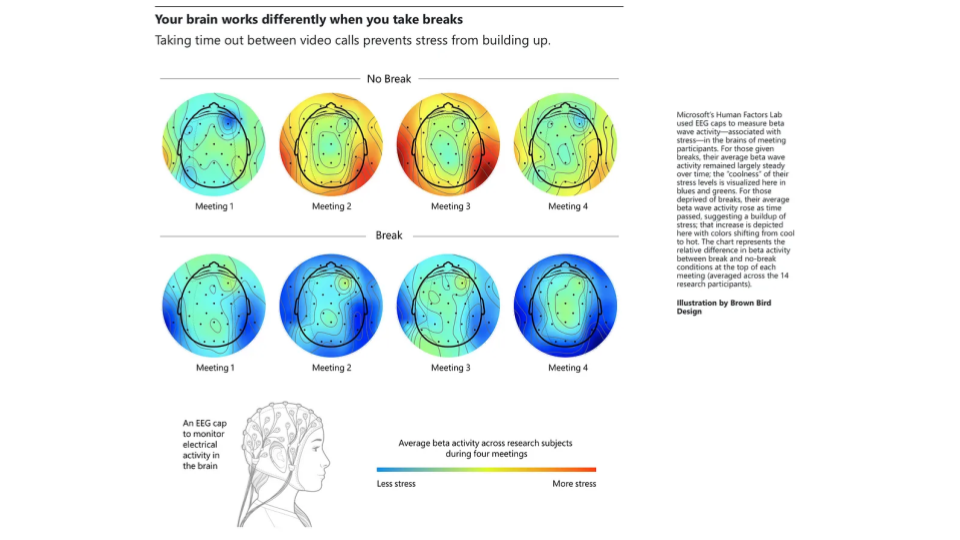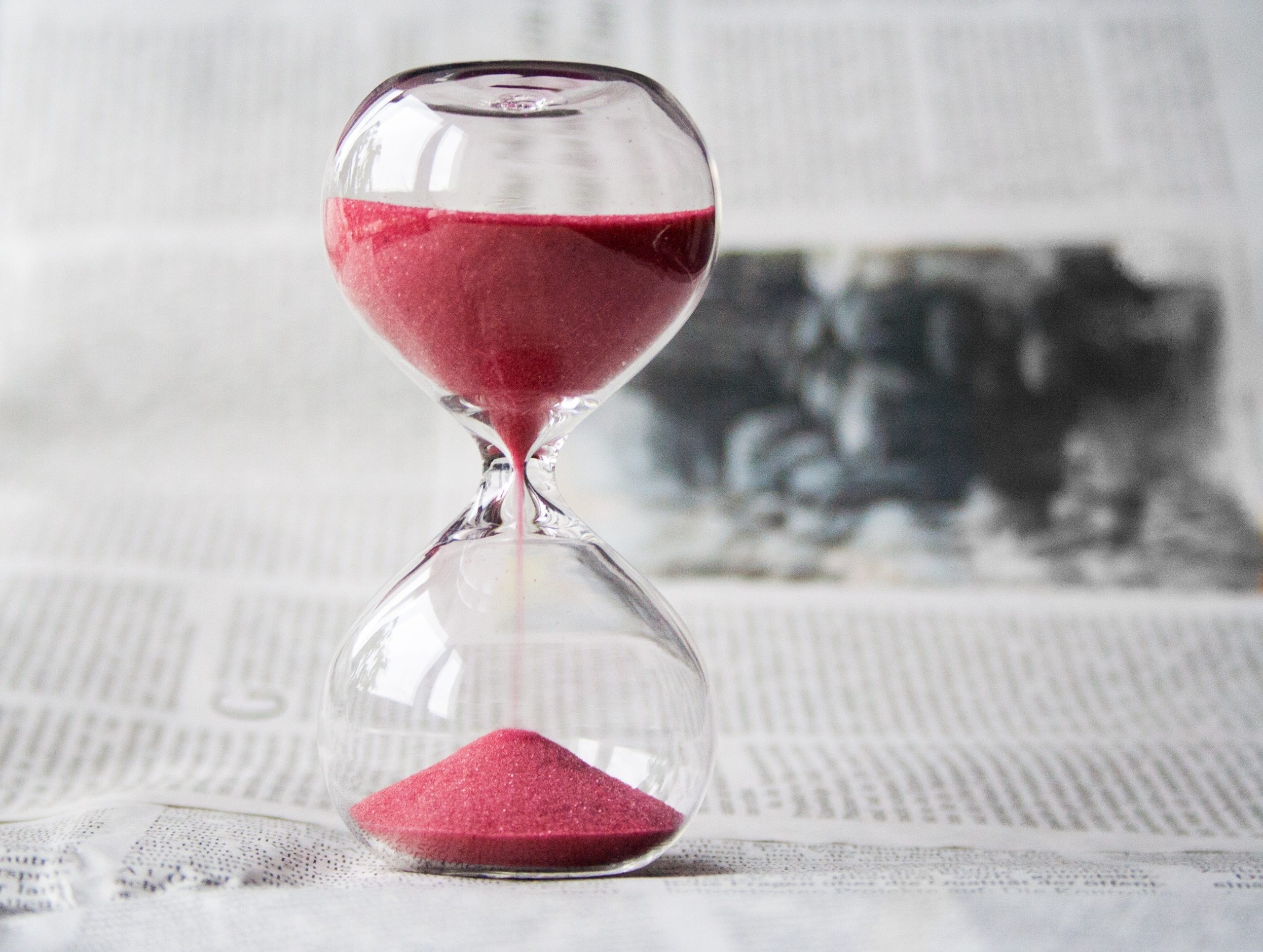18th December, 2019 • 3 min

Written by Charlotte Duckworth
27th June, 2023 •

Picture this: It’s Friday morning. Deadlines are approaching, and you have a mountain of tasks on your to-do list. It’s lunchtime before you know it, but you will yourself to skip lunch and power through the rest of the day.
We’ve all been there.
Our brain’s “logic” tells us that the longer we spend working the more productive we will be, when in reality, this often has a negative impact on the quality and output of our work, as well as our personal health. In fact, there is a huge amount of research to show that taking regular breaks can enhance brain function and help us stay focused for longer.
What counts as a ‘break’ and why are breaks so important?
If we start high-level, there are two key types of breaks:
Taking a mix of both micro and macro breaks is essential for our productivity and well-being.

In one of the largest pieces of research ever conducted on breaks, Microsoft monitored people’s neuro-responses in back-to-back meetings compared to meetings with short breaks in between. The results were unanimous: Back-to-back meetings create a significant, cumulative build up of stress.
In contrast, when individuals took short breaks in between each meeting, the build up of cortisol (our stress hormone) was significantly reduced.
One of the most fascinating insights from this research showed that even knowing you have a break coming up reduces our stress levels. And as you might expect, stress impacts us in many ways! We are worse at decision making, less patient and we make more mistakes.
Ultimately, we can think of our brains a bit like a battery. We have a limited amount of energy to remain productive and if we deplete this too quickly, we need to recharge or risk mental fatigue and burnout. Taking regular breaks is the most effective action we can take to reset.

How can I get in the habit of taking breaks?
It can feel challenging to build in time to break, particularly when things get busy. To help, there are a couple of actions to take to build the habit:
Not all breaks are created equal.
Breaking for longer doesn’t always mean better. In fact, taking short, regular breaks can be even more effective. The best thing you can do is tune into your energy levels, and vary your break length over the course of the day to match.
It’s likely that in the morning, shorter breaks help you to remain energised, while in the afternoon, you may need longer breaks to minimise fatigue and reset.
Where you take your break and what you do during that time can also make a big difference to its effectiveness…
Breaks to avoid.
How often do you pick up your phone during a break? We can end up on social media, reading the news, replying to messages or even online shopping. These activities drain our energy leaving us feeling scattered, overstimulated, and even unintentionally prolonging our breaks.
Instead, aim to take intentional breaks to improve your productivity and wellbeing.

5 breaks to aim for.
1.Green space. Going outside and spending time in nature is a brilliant way to relax, recharge and reduce our cortisol levels, while sunlight and fresh air help to boost our productivity.
If you can’t find green space, then you can bring it indoors! Research has shown that seeing green plants and colours of beige and yellow-green things are associated with a harmonious environment and reduces stress
2. Exercise. One of the most effective ways to help brain function, lay off fatigue and boost energy is to exercise. Research has shown that just 10 minutes of exercise is enough to improve memory and focus. If you don’t want to complete an exercise routine, even a simple walk, standing, stretching, or star jumps (!) have a positive impact
3. Social breaks. Can you catch up with someone on your break? If you are in the office this could be a non-work related conversation with a colleague. If you’re at home, you could call a family member or a friend. Social activities and interacting with others reduces our cortisol levels and gives us the opportunity to cognitively disconnect and recharge
4. Activities. Distract yourself to refocus. If you’re working from home this could include playing an instrument or having fun with a pet. At work, you might eat a snack, do some ergonomic stretches or tidy your desk. The age old saying ‘Tidy Desk, Tidy Mind’ is no myth! Having an organised workspace has been shown to boost creativity, efficiency and reduce stress levels
5. Rest and sleep. Brief naps can be restorative and reduce fatigue during the day. According to research, it’s most effective to sleep for 10-25 minutes when we nap. You can even try a ‘napachino’, drinking a coffee and then napping straight away, to amplify the effect when you wake! Of course this doesn’t replace the importance of a good night’s sleep. A simple breathing exercise can also be impactful; we recommend the 6:6:6 breaths method: Breathe in for 6 seconds, breathe out for 6 seconds, for 6 breaths.
Three key takeaways?
At Higson we run workshops and training programmes to improve productivity and wellbeing of individuals and teams. If you would like to learn more strategies to improve how you take effective breaks, please get in touch.